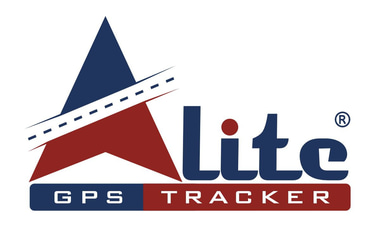Revolutionize Your Tracking Experience – Real Time, Reliable & Effortless tracking solutions
+91 - 7665666631 (Toll Free)
From Data to Decisions: Leveraging GPS for Smarter Fleet Management
In today’s fast-paced business environment, efficient fleet management is crucial for businesses to remain competitive. GPS technology offers fleet managers unparalleled visibility, control, and insights into their operations. From real-time vehicle tracking and driver behavior monitoring to automated maintenance alerts and document management, GPS solutions empower fleet owners to make data-driven decisions that optimize operations, ensure compliance, and reduce costs.
Chandra Singh
3/31/20254 min read


1. Real-Time Vehicle Tracking: Enhanced Visibility and Control
Real-time vehicle tracking is the backbone of modern fleet management. It offers fleet owners precise and up-to-date information about their vehicles, enabling effective decision-making.
Route Optimization and Dynamic Routing:
GPS tracking software can dynamically suggest the fastest routes by considering live traffic conditions, road closures, and weather updates. It ensures drivers take the most efficient routes, reducing fuel consumption and delivery times.For example, if a vehicle encounters heavy traffic or an accident, the software can reroute it instantly, saving valuable time.
Fleet Visibility for Informed Decisions:
Managers can monitor every vehicle on a single platform, ensuring drivers follow planned routes and schedules.Any unauthorized detours or unexpected stops trigger alerts, enabling quick intervention.
Improved Customer Service:
Businesses can share accurate ETAs with customers and notify them of delays in real time. This transparency builds trust and improves customer satisfaction.
2. Fuel Management: Optimize Costs and Reduce Wastage
Fuel costs represent a significant expense for fleets. GPS solutions offer multiple ways to manage and reduce fuel consumption effectively:
Fuel Usage Monitoring:
GPS systems track fuel consumption for each trip and identify inefficient driving patterns.Reports can show mileage, fuel consumption, and fuel efficiency trends over time.
Minimize Idling and Fuel Wastage:
Idling consumes unnecessary fuel and contributes to engine wear. The software detects excessive idling and alerts managers to address it.For example, if a driver idles for over 5 minutes, the software can send an alert.
Route Optimization to Save Fuel:
GPS systems suggest the shortest and most fuel-efficient routes, avoiding congested roads and tolls.
3. Driver Behavior Monitoring: Prioritizing Safety and Accountability
Unsafe driving behavior poses risks to fleet safety and profitability. GPS tracking tools enable:
Real-Time Behavior Monitoring and Alerts:
GPS devices can monitor and report harsh braking, rapid acceleration, over-speeding, and sharp cornering.Automated alerts notify managers instantly about risky behavior.
Driver Scorecards and Performance Evaluation:
The system generates scorecards evaluating drivers on safety and efficiency.Safe drivers can be rewarded, while those needing improvement can receive training.
Ensure Compliance and Reduce Risk:
Enforcing company policies becomes easy by monitoring driver behavior and setting alerts for rule violations.
4. Maintenance Management: Proactive Care for Fleet Health
Unexpected breakdowns can disrupt operations, increase costs, and damage reputations. GPS-based maintenance management ensures proactive care:
Automated Maintenance Alerts and Reminders:
GPS systems track vehicle diagnostics, including engine temperature, battery health, mileage, and engine hours.Reminders are sent when vehicles are due for servicing based on mileage or time intervals.
Preventive Maintenance for Longevity:
Early detection of engine issues prevents major breakdowns.For instance, detecting low battery voltage or abnormal engine temperature helps plan repairs in advance.
Comprehensive Service History Records:
The software maintains a digital record of service dates, replaced parts, and costs.Managers can analyze maintenance history to make informed decisions.
5. Intelligent Reporting and Analytics: Data-Driven Decision Making
Fleet management software generates detailed reports that turn raw data into actionable insights:
Comprehensive Reports for Insights:
Fleet managers can generate reports on fuel consumption, driver performance, route efficiency, and vehicle usage.Reports can be customized to specific timeframes or fleet segments.
Performance Analysis for Business Growth:
Identifying inefficient routes or drivers helps optimize performance.Predictive Analytics for Future Planning:
Predictive maintenance and fuel forecasting help managers plan for future needs.
6. Vehicle Document Records: Simplifying Compliance and Documentation
Managing physical vehicle documents can be challenging. GPS-based solutions offer a streamlined approach:
Centralized Document Management:
Store, access, and manage all vehicle documents, such as RC, insurance, road tax, PUC, and fitness certificates, in one place.Digitally storing documents eliminates the risk of misplacing or damaging them.
Automated Document Tracking and Alerts:
The software can track document expiry dates and send reminders.Avoid fines and penalties by staying compliant.
7. Reminders for Important Compliance Dates
Staying compliant with regulations is crucial for fleet operators. Missing renewal dates can lead to hefty fines and downtime.
Preset Reminders for Critical Renewals:
The software allows managers to schedule reminders for vehicle insurance, RC, road tax, PUC, and fitness certificates.Alerts ensure timely renewals, preventing disruptions.
8. Vehicle Status Monitoring: Efficient Fleet Utilization
Knowing the status of each vehicle ensures efficient fleet management.
Real-Time Vehicle Status Updates:
Categorize vehicles as:In Use: Actively on a trip
Available: Ready for assignment
Under Maintenance: Unavailable for dispatch
This feature helps managers plan vehicle allocation efficiently.
9. Driver and Employee Records Management
Managing driver data manually is cumbersome. GPS-based software digitizes and streamlines this process:
Maintain Complete Driver Profiles:
Store details like driving license, insurance, date of joining, emergency contacts, and training records.Assign Drivers to Vehicles Seamlessly:
Assign drivers to specific vehicles and track assignment history.Optimize driver allocation based on availability and expertise.
10. Multiple Geofencing: Enhanced Security and Monitoring
Geofencing offers virtual boundaries for vehicles, enhancing security and control.
Define Multiple Geofences for Each Vehicle:
Set up zones around warehouses, delivery points, or restricted areas.Receive alerts when vehicles enter or exit geofenced areas.
Ideal for route adherence and preventing unauthorized trips.
11. Vehicle Expense Management: Track and Control Costs
Tracking vehicle expenses manually is prone to errors. GPS solutions automate expense management:
Expense Records and Bill Uploads:
Track fuel, maintenance, tolls, and repair costs.Upload expense bills digitally for seamless record-keeping.
12. Tire and Fastag Management: Precision Control
Managing tires and tolls is critical for fleet safety and cost control.
Maintain Tire Records and Assignments:
Track tire serial numbers, brand, position on vehicles, and wear history.Reduces tire theft and improves maintenance.
Fastag Management for Toll Payments:
Track Fastag usage, recharge history, and toll expenses.Prevent toll violations and ensure smooth payments.
13. Dashcam and Unloading Camera Record
Dashcams ensure driver accountability and enhance security.
Live Video Streaming and Recording:
Monitor driver behavior, cargo handling, and incidents remotely.Ideal for fleet safety and evidence collection.
Conclusion: The Future of Fleet Management with GPS Technology
GPS-based fleet management is transforming fleet operations from data collection to intelligent decision-making. By leveraging real-time insights, fleet owners can streamline operations, enhance safety, and drive profitability.
🚀 Experience Smart Fleet Management with Alite GPS Trackers!
Stay ahead in fleet management with Alite GPS—tailored for smarter, data-driven operations.
👉 Get in touch for a personalized demo!
📞 Toll-Free: 7665666631
📧 Email: sales@alitegps.com
Empowering Your Journey with Smart Tracking!
Fleet or Personal, We Track It All – Get in Touch
support@alitegps.com
Srag India Info Solutions © 2025. All rights reserved.
Info@alitegps.com
